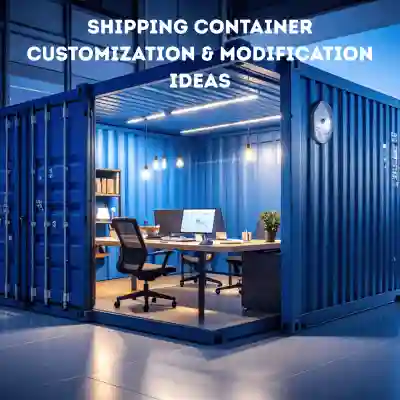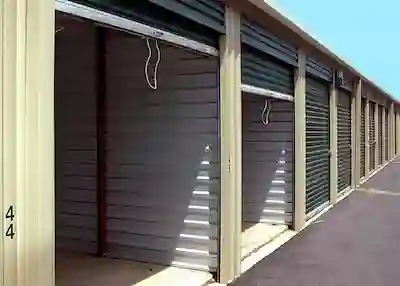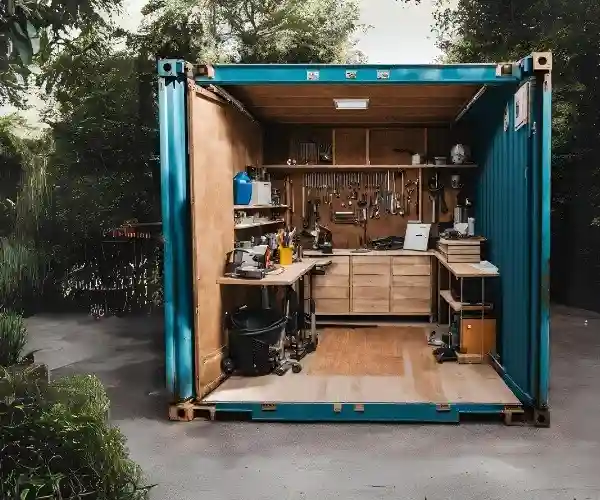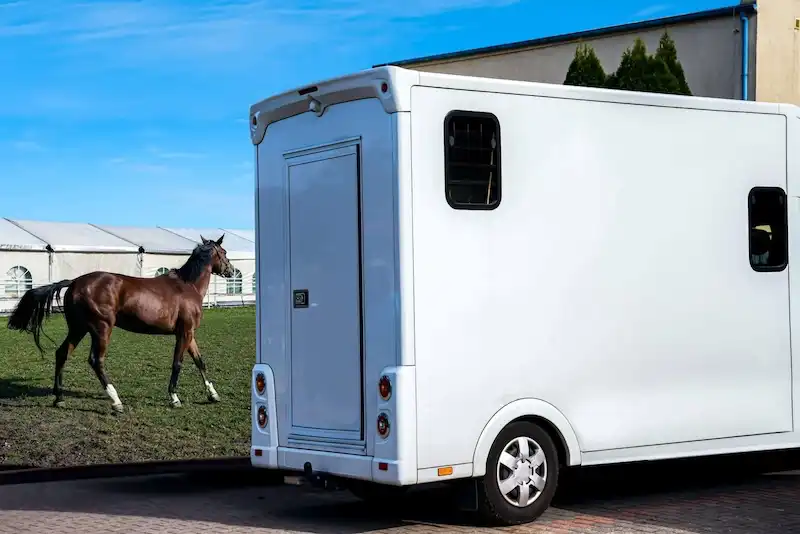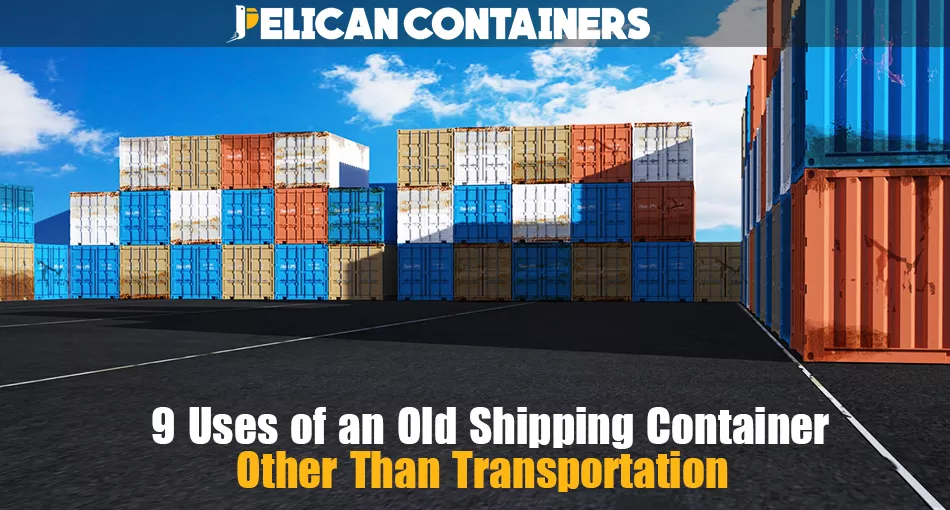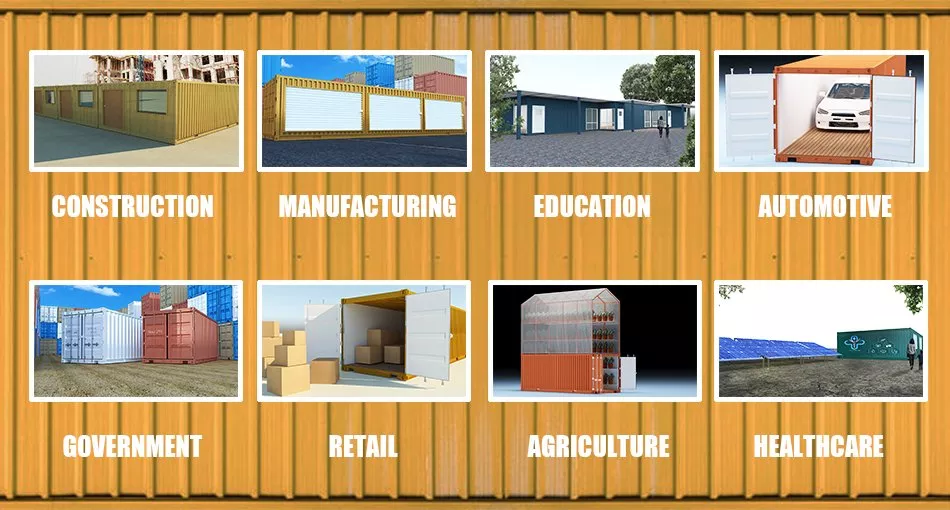How to Start Your Own Shipping Container Self-Storage Business: Step-by-Step Guide

Starting a shipping container self-storage business can be both a profitable and fulfilling endeavor. As more people seek out affordable and flexible storage options, shipping containers offer a practical and cost-effective solution. These sturdy and versatile containers are not only budget-friendly, but also provide a secure way to meet the rising demand for extra storage space.
In this guide, we’ll take you through the key steps and important considerations for setting up your shipping container self-storage facility. From choosing the right location and acquiring containers to managing the day-to-day operations and marketing your business, we’ll cover everything you need to know to turn your idea into a successful venture. Whether you’re looking for information about how to start a storage container business or simply want to explore a new business opportunity, this guide will help you navigate the process with confidence and clarity.
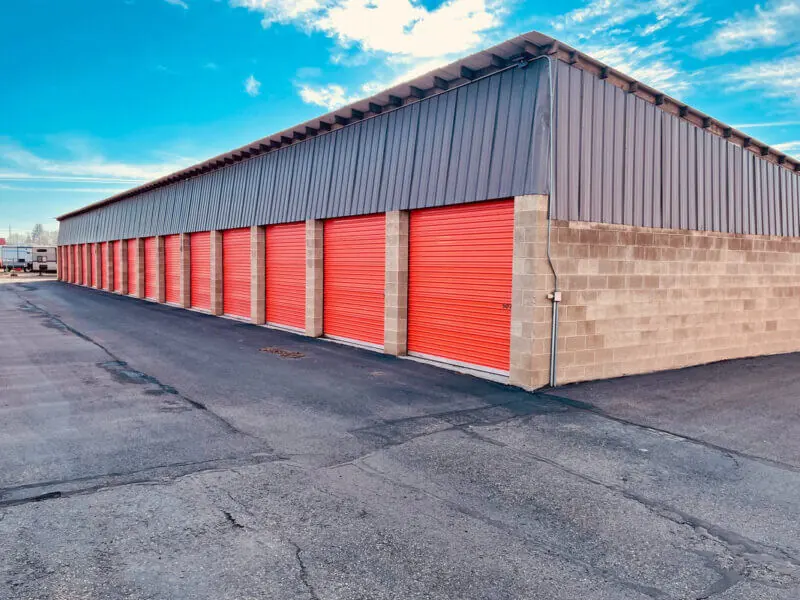
Why the Shipping Container Storage Business?
The self-storage business offers several compelling advantages that make it an attractive option for entrepreneurs:
- Growing Demand. As urban areas expand and living spaces become smaller, more people and businesses require extra storage. Self-storage units provide a convenient solution for storing personal belongings, seasonal items, and business inventory.
- Steady Revenue. Container storage facilities typically generate a reliable stream of income through monthly rental fees. This consistent revenue can be appealing, as it offers financial stability compared to other business models that might be more volatile.
- Low Overhead Costs. Compared to many other businesses, self-storage operations often have relatively low overhead costs. Once the initial investment in containers and site development is made, ongoing expenses such as utilities and maintenance are generally manageable.
- Flexibility and Scalability. Shipping containers are modular and easy to set up, allowing you to start with a few units and expand as demand grows. This flexibility makes it easier to scale your business according to market needs.
- Minimal Staffing Requirements. Self-storage businesses can often run with minimal staff, especially if you implement automated systems for access and payments. This reduces labor costs and simplifies operations.
- Diverse Customer Base. The need for self-storage spans various demographics and industries, including homeowners, renters, students, and small businesses. This wide range of potential customers helps diversify your revenue sources.
- Increased Property Value. Adding a self-storage facility to your real estate portfolio can increase the overall value of your property. It can also attract tenants and buyers who are interested in additional storage options.
- Low Maintenance. Shipping containers are durable and require relatively little maintenance compared to traditional buildings. Their robust construction helps protect stored items from weather and environmental damage.
Diving into the self-storage industry means you’re stepping into a field that offers real value to an increasing number of people and businesses. The steady income potential, combined with relatively low operating costs and the flexibility to meet changing market needs, makes self-storage a great choice for many new entrepreneurs. It’s an opportunity to build a reliable business that supports people and businesses in their quest for extra space, all while enjoying a solid return on your investment.
Why Shipping Containers?
Choosing shipping containers for your self-storage business offers several distinct advantages:
- Affordability. Shipping containers are often more cost-effective than traditional construction materials. Their relatively low purchase price and minimal setup costs make them an attractive option for starting a storage facility without breaking the bank.
- Durability. Designed to withstand harsh conditions at sea, shipping containers are incredibly strong and resilient. They are built to endure heavy loads and adverse weather, making them an ideal choice for secure and long-lasting storage solutions.
- Modularity. Containers are modular and easy to stack, allowing for flexible and scalable storage solutions. You can start with a few containers and expand as demand grows, giving you the ability to adapt your facility to changing needs.
- Quick Setup. Setting up a self-storage facility with shipping containers is faster than traditional construction. The containers are pre-fabricated and can be quickly transported and assembled, reducing your time to market.
- Security. Shipping containers are inherently secure due to their robust steel construction and locking mechanisms. This provides a high level of protection for stored items, which is a crucial aspect of any self-storage business.
- Versatility. Beyond storage, shipping containers can be repurposed for various uses, including office spaces, workshops, and even retail units. This versatility allows you to get creative with your business model or expand into other areas if desired.
- Environmental Benefits. Using shipping containers is a form of recycling, which aligns with sustainable building practices. Repurposing these containers helps reduce waste and minimizes the environmental impact of new construction.
- Low Maintenance. Containers are designed to be low-maintenance. Their durable construction means they require less upkeep compared to traditional buildings, saving you time and money on repairs and maintenance.
- Portable and Flexible. Containers can be relocated if needed, giving you the flexibility to adjust your facility’s location or reconfigure your layout. This portability adds an extra layer of adaptability to your business.
In short, shipping containers provide a great mix of affordability, durability, and flexibility, making them an ideal choice for starting a self-storage business. Their strong and adaptable design helps create a secure and dependable storage solution, meeting the varied needs of a wide range of customers.
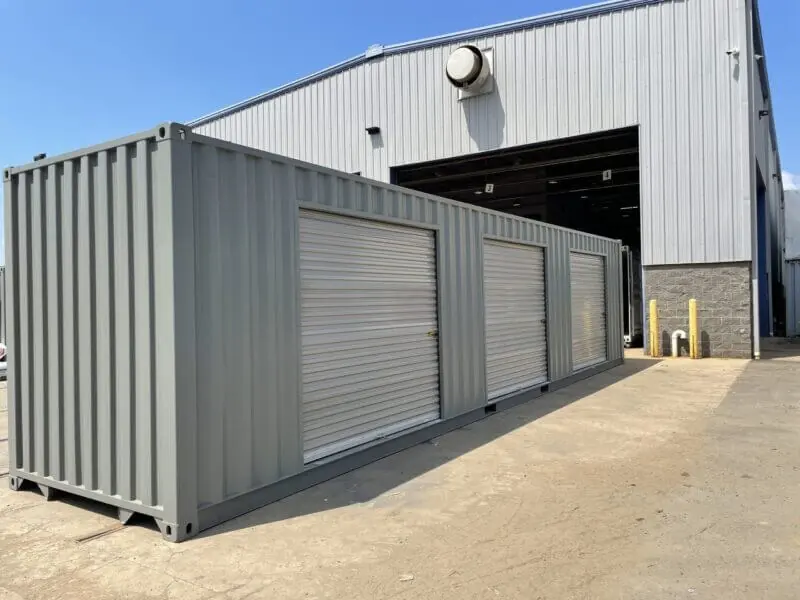
How Much Money Can I Make?
The potential earnings from a shipping container self-storage business can vary widely based on several factors, including location, pricing, and occupancy rates. To provide a clearer picture, let’s consider four different scenarios:
- Scenario 1: Small Scale Operation.
A small facility with 10-20 containers located in a suburban area can generate moderate revenue. Assuming an average monthly rental rate of $100 per container and an occupancy rate of 80%, you could expect monthly revenue of $1,600 to $3,200. Annual revenue would range from $19,200 to $38,400.
- Scenario 2: Medium Scale Operation.
A medium-sized facility with 50-100 containers in an urban or high-demand area can yield higher returns. With an average monthly rental rate of $150 per container and an occupancy rate of 85%, monthly revenue could be $6,375 to $12,750. Annual revenue would range from $76,500 to $153,000.
- Scenario 3: Large Scale Operation.
A large facility with 200-500 containers in a prime location can achieve significant revenue. Assuming an average monthly rental rate of $200 per container and an occupancy rate of 90%, monthly revenue could range from $36,000 to $90,000. Annual revenue would be between $432,000 and $1,080,000.
- Scenario 4: Specialized Storage Solutions.
Specialized storage solutions, such as climate-controlled containers or containers designed for specific purposes (e.g., vehicle storage), can command higher rental rates. With premium pricing of $250-$400 per container and a high occupancy rate, the revenue potential is substantial, making this a lucrative niche market.
Location
Picking the right location is key to making your shipping container self-storage business successful. Look for areas with lots of people, a need for more storage options, and a strong demand for extra space. Urban and suburban spots close to neighborhoods, commercial areas, or industrial zones are perfect because they offer the visibility and accessibility that attract customers.
Permits
Before launching your shipping container mini-storage business, it’s important to check out the local zoning laws and get the necessary permits. Following these regulations is crucial to avoid any legal troubles or fines. You might need various permits like building permits, business licenses, and to meet fire and safety codes.
Prepping the Area
Next, get your site ready by clearing and leveling the ground. Depending on the land, you might need to set up a concrete foundation or gravel base to ensure everything stays stable and drains properly. Also, make sure to install good lighting and security features, like fencing and surveillance cameras, to keep your customers’ belongings safe.
Buying Shipping Containers
Buy high-quality shipping containers from trusted suppliers. Pay attention to factors like size—whether you need 20-foot or 40-foot containers—condition (new or used), and any modifications you might need, such as ventilation, insulation, or security features. Purchasing in bulk can often help you get better prices.
Prepping Your Shipping Containers
Once you have your containers, get them ready for storage use. This involves thoroughly cleaning them and making any necessary adjustments, like adding shelving, lighting, or climate control systems. Make sure each container is equipped with strong locking mechanisms to keep your customers’ belongings safe from theft and vandalism.
Financing
Securing financing is often a critical step in launching your shipping container self-storage business. Explore various financing options, such as personal savings, bank loans, or investors. Some suppliers may offer financing or leasing options for purchasing containers. A well-structured business plan can help you secure the necessary funding.
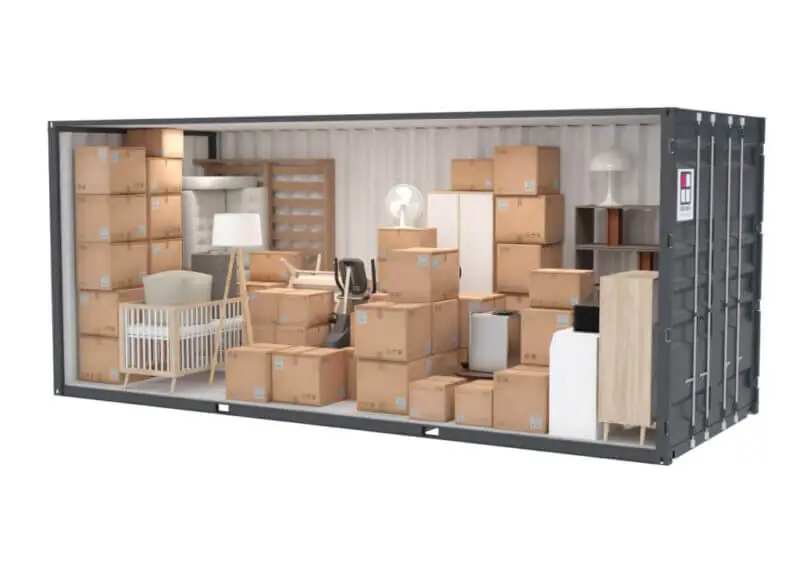
Conclusions
Getting your shipping container rental business off the ground involves careful planning and execution. By selecting the right location, meeting all legal requirements, and providing high-quality, secure storage options, you can tap into a growing market and build a successful container storage business. The affordability and versatility of shipping containers offer a great opportunity for strong returns on your investment.
Vanessa is a dedicated writer and content enthusiast at Pelican Containers. With a background in practical writing and a keen eye for clarity, she transforms complex container topics into easy-to-understand and useful content. Her passion lies in exploring the evolving world of container usage — from smart storage hacks to global logistics trends.
When she's not writing, Vanessa loves discovering creative shipping container projects or traveling to find new inspiration.
Explore thoughtful, informative, and accessible content with Vanessa!
Vanessa is a dedicated writer and content enthusiast at Pelican Containers. With a background in practical writing and a keen eye for clarity, she transforms complex container topics into easy-to-understand and useful content. Her passion lies in exploring the evolving world of container usage — from smart storage hacks to global logistics trends.
When she's not writing, Vanessa loves discovering creative shipping container projects or traveling to find new inspiration.
Explore thoughtful, informative, and accessible content with Vanessa!
FAQ
What are the initial steps to take when starting a shipping storage container business?
Start by researching the demand for self-storage and creating a solid business plan. Choose a high-traffic location, secure financing through savings, loans, or investors, and purchase quality shipping containers. Prepare the site and modify the containers with necessary features like shelving and security.
How do I choose the right location for my shipping container storage facility?
Select a location with high population density and visibility, preferably near residential, commercial, or industrial areas. Ensure the site is easily accessible and evaluate the competition to gauge demand.
What are the legal and regulatory requirements for operating a storage containers business?
Research local zoning laws, obtain the necessary permits and business licenses, and comply with fire and safety codes. Ensure you have appropriate insurance coverage.
How can I finance the purchase and setup of shipping containers for a self-storage business?
Finance through personal savings, bank loans, or investors. Some container suppliers offer financing or leasing options. Look into grants or incentives for additional funding opportunities.
